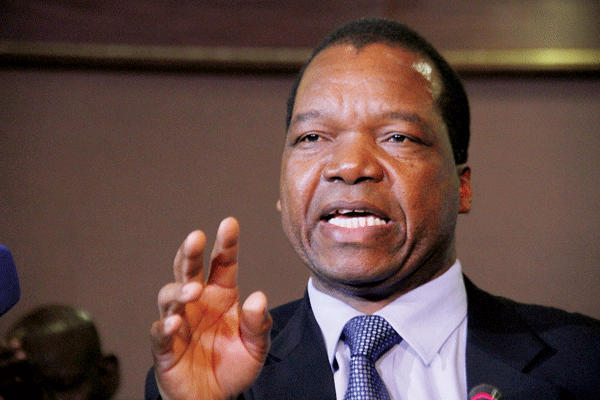
THE Reserve Bank of Zimbabwe (RBZ) has blamed rampant indiscipline for fuelling the foreign currency shortages, adding that the $3,7 billion generated in the period January to August is enough to meet the country’s foreign exchange needs.
BY FIDELITY MHLANGA
Officiating at the Zimbabwe National Chamber of Commerce breakfast meeting yesterday in Harare, RBZ governor John Mangudya said the forex generated recently through exports and remittances among others was more than what Zimbabwe used to receive 10 to 20 years ago.
“Rent seeking behaviour is a major problem among Zimbabweans. If you look at the amount of foreign exchange coming to Zimbabwe today compared to about 10-20 years ago. It’s now much more. Foreign exchange receipts that we received by end of August this year, if you combine with exports and diaspora remittance and others was $3,7 billion,” he said.
Mangudya said the forex receipts were being abused.
“If it was being used efficiently that is sufficient for this economy. But there are rent seekers in this economy. And there is an idea of thinking that USD is our domestic currency which we should abuse, so the rate of abuse is very high in this country, so that’s why we are requesting for self-discipline,” he said.
Mangudya said the foreign currency demand was surging because the “rate at which the economy is expanding is much faster than the way we are generating foreign currency to sustain that growth”.
“This year we have a bumper harvest; there are now more than 1 million tonnes that have been sold to GMB [Grain Marketing Board]. What does this mean? About $390 million has been injected in the economy. It increases disposable income to farmers.
- Chamisa under fire over US$120K donation
- Mavhunga puts DeMbare into Chibuku quarterfinals
- Pension funds bet on Cabora Bassa oilfields
- Councils defy govt fire tender directive
Keep Reading
What does it do? It increases demand for grain bags. The grain bag producing companies are operating at full throttle and are not meeting demand and we are supplementing that demand through importation. So we are creating a demand-induced foreign exchange,” he said.
Mangudya said there was no reason for the prevailing fuel shortages as RBZ has increased by 30% foreign currency allocation on the importation of fuel. He said fuel retailers have no reason to refuse plastic money.
“We used to provide $7 million of fuel per week but there was no panic but now we are even increased to $10 million per week and now there is panic. The same fuel service stations are refusing to accept plastic money but that money is never theirs,” he said.
“We are putting those facilities so that people think exports. That’s why we said in our monetary policy statement, think exports. Export, subsidise or die. If you look at the Asian Tigers, they grew from exports. After a certain level of production you reach what we call economies of scale then you remove those subsidises. But for now for any person to suggest that Zimbabwe does not need an export support price that person need to be examined.”
Mangudya said premiums on cash were coming due to a mismatch between dollars in the banks and the amount of foreign currency in Zimbabwe.
“Whenever there is a mismatch you are bound to have a premium. Even the basic economic problem by Adam Smith on supply and demand that there is a limited supply and limited demand, so foreign currency is limited against the quantity of dollars in bank accounts,” he said.











